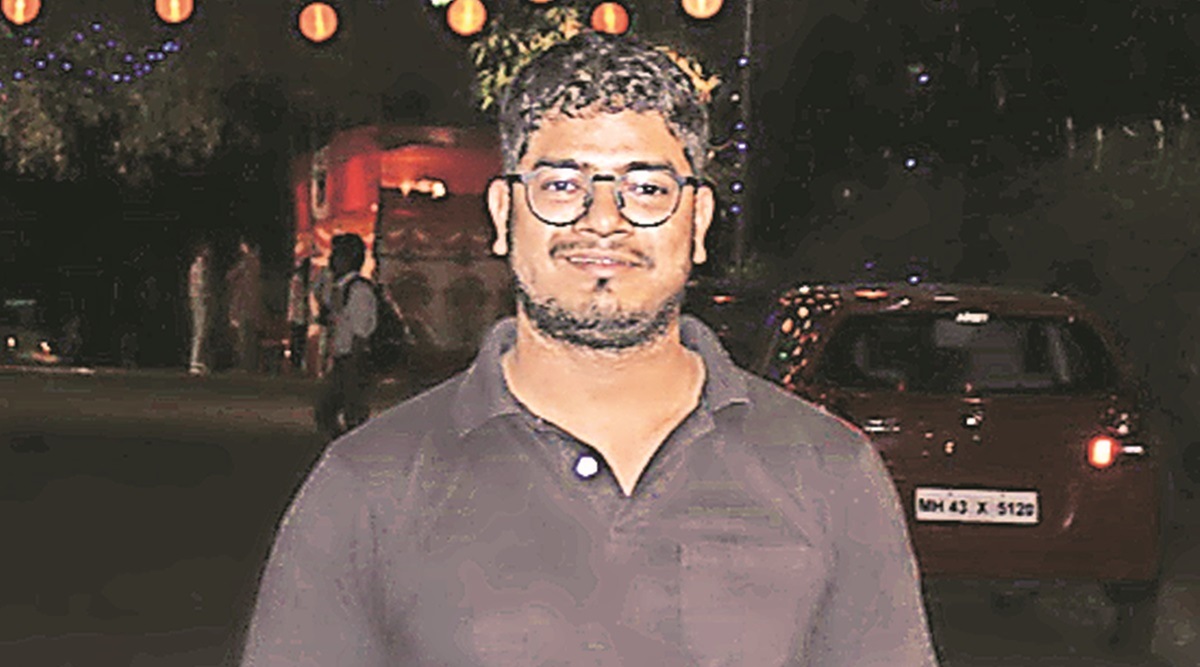 Aditya Charegaonkar
Aditya Charegaonkar DURING THE national lockdown last year, Mumbai-based Aditya Charegaonkar, drawing from his own personal experiences of growing up in various children’s institutions, knew that many youth care-leavers would be rendered without support and unable to pay rent due to loss of jobs.
A rapid assessment survey, undertaken by him along with others, revealed that of 442 such youngsters, a majority faced difficulties. Funds were raised for them but many find themselves in the same situation again during the second wave.
Youth care-leavers are youngsters, who were part of care institutions as children, including orphans, those with single parents unable to take care of them, who are now adults.
The law recognises their need to be given aftercare as they leave these institutions on turning 18, mostly requiring fending for themselves without any safety net of employment or education. The survey revealed that many women care-leavers faced violence and had no support, others faced difficulties in securing a shelter and requiring ration, after hostels were shut.
Despite aftercare being an integral part of the Juvenile Justice (Care and Protection of Children) Act, 2015, aftercare remains ignored to a large extent. Charegaonkar, who has himself been a care-leaver, endeavours to change that.
In 1993, he was found by the police and produced before a Juvenile Welfare Board. The records do not show where he was found or how he got separated from his family. The lack of documentation makes him suspect it could have been during the riots or the blasts, which had taken place that year.
Charegaonkar was three then and was sent to an institution after his family remained untraced. All he was told later was that old records showed his name as Sunny and that he would often mention a grandmother. He was not sent for adoption and ended up living in different care homes over the years.
He was given a name and a surname by one of the institutions in Pune, where he lived till Class VII.
“I was shifted from a family set-up in the first care home to a hostel later. These aspects create a sense of detachment and a lack of development, leaving many children unable to focus on education,” he says.
At 16, he worked as an apprentice with an electrician.
Aspiring to continue his higher education, Charegaonkar was put-off by the insistence by authorities to enrol in an Industrial Training Institute that offers skills like electrical work and carpentry among others.
“These institutes are the only suggestion given to children, who grow up in institutions. It is as if their career paths are deemed restricted to only a few jobs. This needs to change with more options being given to children in institutions,” he says.
With help from a counsellor, Charegaonkar managed to enrol in a course to graduate for a degree in social work and even pursued a post-graduate degree course subsequently. Charegaonkar says not everyone is as fortunate.
“There is very little done for care-leavers once they are out of the institutions. How are they expected to fend for themselves suddenly?” He adds that care-leavers even face hurdles in acquiring basic documents to get ration cards, passports, or other identification proofs.
While some states give a monthly amount to every young adult as per the Integrated Child Protection Scheme as part of its aftercare programme, other good practices involve sponsorship, group homes and training.
In Maharashtra, the aftercare programme has hostels for care-leavers.
Charegaonkar has served as a committee member with the state Women and Child Development department for planning and implementing a policy for orphans in the state.
“While most care-leavers have similar experiences, we are not one unit and are scattered across. Even though we are aware of these problems, we are too caught up in fending for ourselves. I hope to strike a balance and both study and advocate for care-leavers,” he says.
- The Indian Express website has been rated GREEN for its credibility and trustworthiness by Newsguard, a global service that rates news sources for their journalistic standards.

